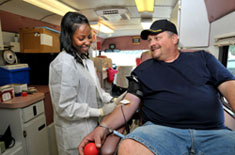 Before signing up to enroll in a bachelor’s, master’s, or doctoral degree related to public health, it is essential that you are aware of the jobs available with a public health degree to ensure you are making a sound investment for reaching your career goals. As the science of protecting and improving the health of communities through the promotion of healthy lifestyles, public health is a broad and rewarding field that offers meaningful career opportunities for people across interests. In fact, pursuing a career in the public health field is one of the ideal ways for students to access high salary potential and help society improve its well-being at the same time, according to the Association and Schools and Programs of Public Health. Therefore, the following is a list of the top jobs available with a public health degree to help you decide whether these educational credentials are right for you.
Before signing up to enroll in a bachelor’s, master’s, or doctoral degree related to public health, it is essential that you are aware of the jobs available with a public health degree to ensure you are making a sound investment for reaching your career goals. As the science of protecting and improving the health of communities through the promotion of healthy lifestyles, public health is a broad and rewarding field that offers meaningful career opportunities for people across interests. In fact, pursuing a career in the public health field is one of the ideal ways for students to access high salary potential and help society improve its well-being at the same time, according to the Association and Schools and Programs of Public Health. Therefore, the following is a list of the top jobs available with a public health degree to help you decide whether these educational credentials are right for you.
Public Health Educator
As a vital link between the community and other healthcare workers, public health educators are responsible for teaching the public about behaviors that promote wellness in an effort to implement strategies for improving the health of whole communities. Public health educators are generally involved in assessing the needs of their community, developing programs to teach people about health topics, educating people on how to manage existing health conditions, providing health services information, supervising staff in health education programs, analyzing data about their audience, and advocating for improved health resources. Entry-level health educator positions require a bachelor’s degree in public health or health education, but positions for government agencies may require a master’s degree or higher.
Industrial Hygienist
In an effort to reduce the risks of health-related dangers in the workplace, industrial hygienists often conduct research about potential hazards and create strategies for organizations to minimize the dangers associated with particular workplace situations. Industrial hygienists may also train employees and company executives with strategies to avoid potentially harmful health hazards on the job to keep a safe, happy workforce. As the demand for experienced industrial hygienists continues to rise, students pursuing this career path should complement their public health degree with knowledge in engineering, health physics, hazardous material management, risk communications, and chemistry whenever possible.
Epidemiologist
In one of the prominent sub-specialties of public health, epidemiologists are given the responsibility of identifying illnesses, researching the mechanisms of certain illnesses, and preventing the transmission of the disease to preserve the well-being of populations. While hard at work in medical facilities, laboratories, and hospitals, epidemiologists focus on performing research to discover illnesses impacting their local or national community to reduce the occurrence of negative health outcomes. Epidemiologists need to have at least a master’s degree in public health from an accredited post-secondary institution, but a Ph.D degree is typically preferable for directing research projects in academia.
Related Resource: Health Informatics
Since our world is continually needing qualified professionals to make a positive change in preserving the well-being of our communities, earning a degree in public health can be an excellent decision that leads to long-term job stability. In fact, Forbes magazine has named public health as the sixth best master’s degree for jobs with a projected employment increase of 30.5 percent over the next decade. Along with these jobs available with a public health degree, individuals with a background in public health may also find opportunities as tropical disease experts, HIV specialists, medical directors, public health lawyers, environmentalists, behavioral scientists, bioterrorism researchers, biostatisticians, emergency response experts, and more.